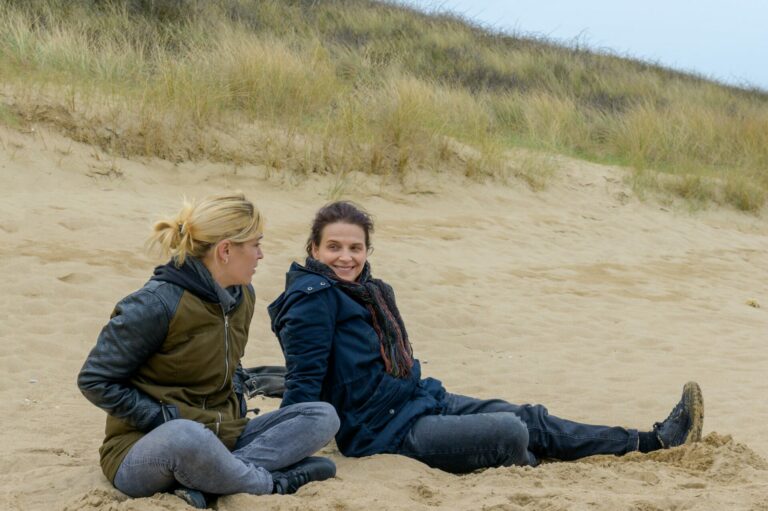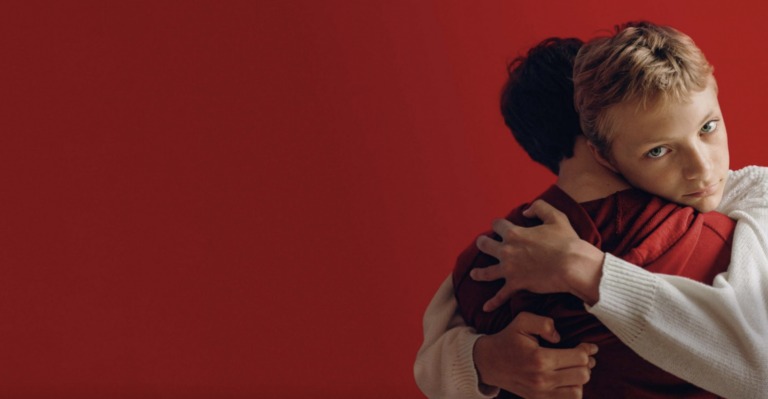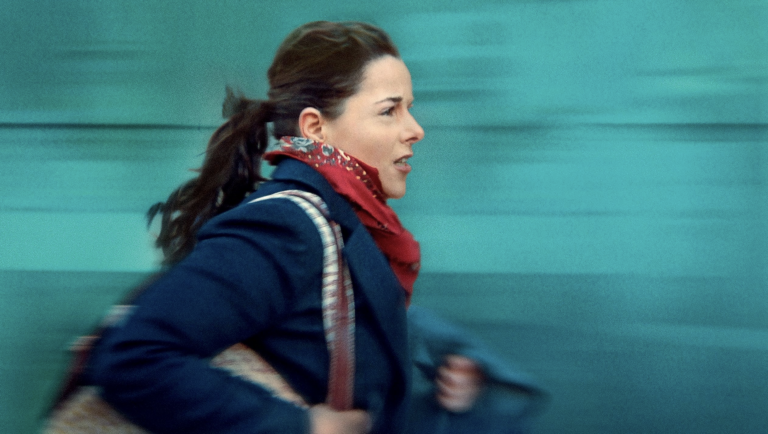When considering which film to submit for consideration in the category of “Best International Film” at the 2024 Oscars, France selected the 19th century culinary love story, The Taste of Things, starring Juilette Binoche, about a renowned gourmand and his personal cook, who fall in love while cooking up much deliciousness in the kitchen together over twenty years.
The decision took the cinematic world by surprise. Not because the film was undeserving; its director Trần Anh Hùng (The Scent of Green Papaya) had, after all, won the award for Best Director for The Taste of Things at the 2023 Cannes Film Festival. But both the mainstream press and social media declared that another film, Justine Triet’s courtroom drama Anatomy of a Fall, had been snubbed. (Triet herself re-posted messages on her own Instagram that called The Taste of Things “boring.”) Sure enough, it was Anatomy of a Fall that took Cannes’ top prize, the Palme d’Or, and went on to become a worldwide sensation and win a ridiculous number of awards. All this and the wild critical success of Triet’s film led many to believe that the French Oscar selection committee had made a big mistake. Anatomy of a Fall might just have been the movie to win France the Best International Feature prize for the first time since 1993, when Indochine director Régis Wargnier took the golden boy home.
We all know what happened next: The Taste of Things did not make the Oscar short-list. Instead, the nominees for Best International Film at The 96th Academy Awards (being held on Sunday, March 10) are The Zone of Interest (United Kingdom, directed by Jonathan Glazer), Perfect Days (Japan, directed by Wim Wenders), Society of the Snow (Spain, directed by J.A. Bayona), The Teachers’ Lounge (Germany, directed by İlker Çatak), and Io Capitano (Italy, directed by Matteo Garrone).
For a bit of history, while Italy has the highest number of Oscar wins for Best International Feature Film with 14 (France has won 12), France has the highest number of nominations, with an astounding 41, since the Academy began recognizing international films separately from English-language films in 1947. Italy is in second place with 33.
But in an unheard of turn of events, Anatomy of a Fall went on to score five Oscar nominations: Best Actress in a Leading Role for Sandra Hüller; Best Original Screenplay; Best Editing; Best Directing for Triet (the only woman nominated, and the first French woman, ever, to be nominated), and Best Picture. Not International Feature, but Best Picture, everywhere. This all led the film’s stunned writer/director, Triet, to exclaim, “This is crazy for me!” Much of the media and press declared the outpouring of nominations Triet’s revenge for the earlier snub.
While such French-produced, or co-produced, films such as Tar, The Hurt Locker and The Pianist, all shot primarily in English, have received nods for Best Picture, The Anatomy of a Fall is only the third French-language film to be nominated for the award, following The Artist (Michel Hazanavicius, 2011), and Amour, (Michael Haneke, 2012). The Artist further rocked the world by actually winning Best Director, Best Actor for Jean Dujardin, and Best Picture.

While all the hubbub is now water under the proverbial bridge, The Taste of Things has remained largely unseen in the U.S. It will finally have its moment on American screens starting today, February 9th.
Loosely based on the novel The Passionate Epicure: La Vie et La Passion de Dodin-Bouffant, Gourmet by Marcel Rouff (1920), The Taste of Things begins with a 38-minute scene, in which Dodin (Benoît Magimel) and Eugénie (Juliette Binoche) cook a meal for his foodie friends. For 38 minutes, the lovers/chefs and their young culinary assistants prepare dish after delectable dish for the big night. They add an ingredient, adjust a flame. They smell, they taste. Pans sizzle and pots steam as they navigate easily around one another, the sunlight flowing through the kitchen windows and eventually draining from the sky.
As the food cooks, cinematographer Jonathan Ricquebourg’s camera never stops moving, caressing the ingredients lovingly with its lens. When the meal finally arrives à table, the guests eat in silence. Who needs to speak when there is food as good as this to devour? Back in the kitchen, Eugénie eats with Pauline (Bonnie Chagneau-Ravoire), a young girl hoping to become her apprentice. Pauline acts as our proxy, tasting foods for the first time—vol au vent, baked Alaska—as we wish we could, her eyes going wide in wonder, even filling with tears (“It’s the best thing I’ve ever eaten,” she says of the vol au vent). Pauline is moved by the power of food to awaken the senses and emotions, even change your life, when prepared right.

After this extraordinary meal, we get a taste of Dodin and Eugénie’s life together. We learn that they have lived and worked together for 20 years and that, sometimes, he makes his way to her bedroom at night; more often than not she lets him in. We also learn that he has proposed to her repeatedly, but so far she has refused him. When life is as idyllic as theirs, why mess with it?
While the film is thick with flavor, atmosphere, and sensuality, it is not heavy on plot. Its arc is gentle, consisting primarily of days passing with the rise and fall of the sun, one sumptuous meal after the next providing punctuation. One narrative thread is built around an invitation for Dodin and his friends to dine at the lodgings of the Prince of Eurasia. There, Dodin is served a meal so extravagant, that he struggles to consume every course.
When devising the meal he’d like to serve the prince in return, Dodin decides on a pot-au-feu, a simple, rustic dish of boiled meat and vegetables that many French people, even today, fondly remember being served by their maman. Before he’s had a chance to cook for the prince, Eugénie falls ill and Dodin prepares the pot-au-feu for her, in a meal he’s sure will capture her heart. The attention he devotes to its preparation–the patience, the time, the love he pours into every dish, every bite, every moment–is his way of expressing the way he feels for her. He wants to declare himself. He wants to heal her the only way he knows how. It’s an offering, a declaration, a love letter, and it’s exquisite. Dodin says of Eugénie that he reads a recipe and she creates magic with it at the stove. When it’s his turn, the extraordinary repast he cooks for her brims with magic.
Maybe this wasn’t the year for this film to go to the Oscars. But it surely will capture many hearts. It’s about food as an expression of love, a conceit that is so simple, so lovely and poignant, especially in a moment filled with complication, brutal divisions, and suffering on a global level. The film’s poignancy and its message of life’s impermanence and treasuring the moment is enhanced by the fact that its stars, Binoche and Magimel, were also once in love. They share a child and separated 20 years ago, the same amount of time that Dodin and Eugénie, the characters they play so movingly, have loved and cooked with, and for, each other.
At one point, Dodin quotes St. Augustine to Eugénie. He says, “Happiness is continuing to desire what we already have. But you, have I ever had you?” Maybe Eugénie’s refusal to give herself completely to him has kept his desire constant and strong. Or maybe it’s just the fact that they cook together day after day, year after year, creating meals that excite both of them and join them together in a consistent quest for food that satisfies their bellies and their yearning hearts. The moments and meals they have shared will sustain them, even in the face of sadness, loss and time passing, as it inevitably does. Belonging to one another is not a prerequisite for a fulfilled life. It seems sharing a grand passion is good enough.






